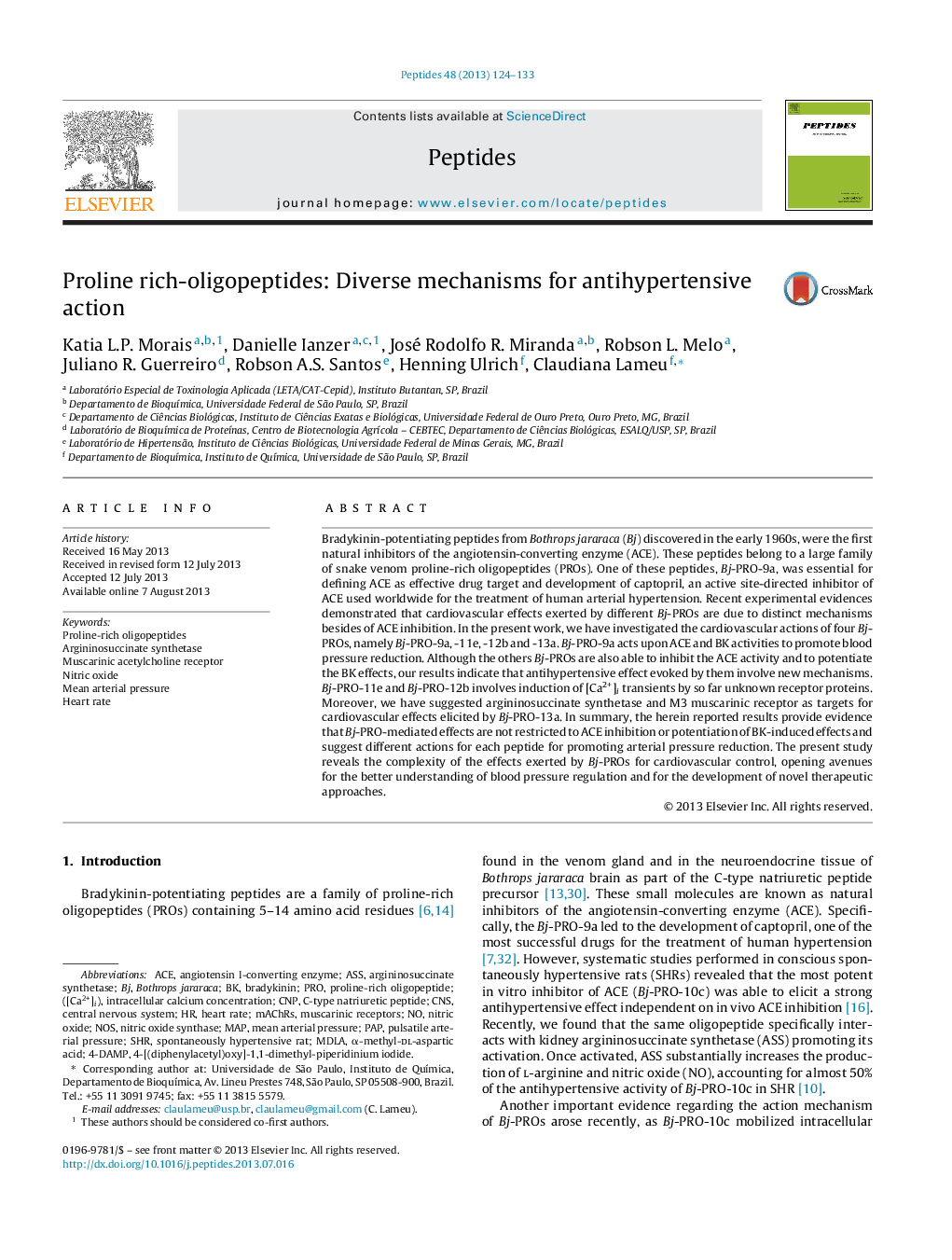| Article ID | Journal | Published Year | Pages | File Type |
|---|---|---|---|---|
| 2006206 | Peptides | 2013 | 10 Pages |
Abstract
Bradykinin-potentiating peptides from Bothrops jararaca (Bj) discovered in the early 1960s, were the first natural inhibitors of the angiotensin-converting enzyme (ACE). These peptides belong to a large family of snake venom proline-rich oligopeptides (PROs). One of these peptides, Bj-PRO-9a, was essential for defining ACE as effective drug target and development of captopril, an active site-directed inhibitor of ACE used worldwide for the treatment of human arterial hypertension. Recent experimental evidences demonstrated that cardiovascular effects exerted by different Bj-PROs are due to distinct mechanisms besides of ACE inhibition. In the present work, we have investigated the cardiovascular actions of four Bj-PROs, namely Bj-PRO-9a, -11e, -12b and -13a. Bj-PRO-9a acts upon ACE and BK activities to promote blood pressure reduction. Although the others Bj-PROs are also able to inhibit the ACE activity and to potentiate the BK effects, our results indicate that antihypertensive effect evoked by them involve new mechanisms. Bj-PRO-11e and Bj-PRO-12b involves induction of [Ca2+]i transients by so far unknown receptor proteins. Moreover, we have suggested argininosuccinate synthetase and M3 muscarinic receptor as targets for cardiovascular effects elicited by Bj-PRO-13a. In summary, the herein reported results provide evidence that Bj-PRO-mediated effects are not restricted to ACE inhibition or potentiation of BK-induced effects and suggest different actions for each peptide for promoting arterial pressure reduction. The present study reveals the complexity of the effects exerted by Bj-PROs for cardiovascular control, opening avenues for the better understanding of blood pressure regulation and for the development of novel therapeutic approaches.
Keywords
NOSCNPmAChRsASsPAP4-DAMPBothrops jararacaACEargininosuccinate synthetaseangiotensin I-converting enzymebradykininSpontaneously Hypertensive RatCNScentral nervous systemShrHeart rateintracellular calcium concentrationpulsatile arterial pressuremean arterial pressurePROmapNitric oxidenitric oxide synthaseC-type natriuretic peptidemuscarinic acetylcholine receptorMuscarinic receptors
Related Topics
Life Sciences
Biochemistry, Genetics and Molecular Biology
Biochemistry
Authors
Katia L.P. Morais, Danielle Ianzer, José Rodolfo R. Miranda, Robson L. Melo, Juliano R. Guerreiro, Robson A.S. Santos, Henning Ulrich, Claudiana Lameu,
